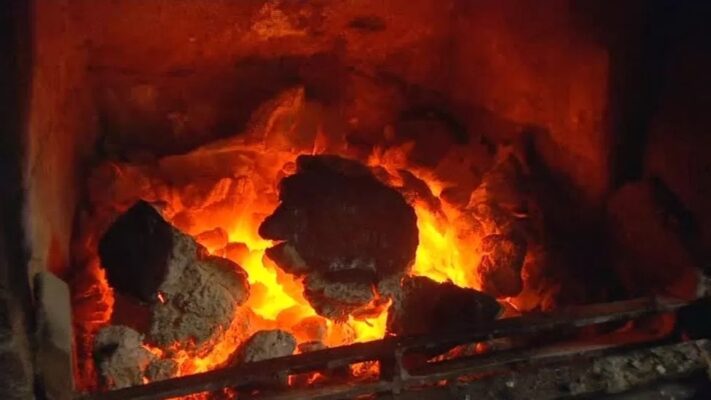 People who do not comply with a ban on burning coal in the North West have been warned they face fines of up to £1,000.
People who do not comply with a ban on burning coal in the North West have been warned they face fines of up to £1,000.
It follows a spike in air pollution in parts of counties Derry and Tyrone over the weekend.
Those levels have now dropped, according to Department of Agriculture, Environment and Rural Affairs data.
Derry City and Strabane District Council said in smoke control zones only smokeless fuels are permitted.
“When fuels such as coal, wood and turf are burnt, the smoke they emit can contain harmful gases and microscopic particles which can cause damaging health effects,” the local authority’s head of health and community wellbeing Seamus Donaghy said.
He added: “Smoke control areas are in place to control domestic particulate emissions from solid fuel burning and protect the public’s health and the quality of the air that we all breathe.”
Smoke control areas were first introduced in the Strabane area in 2007.
On Sunday, health alerts were sent to residents after Strabane recorded a pollution level of 10 the highest number on the scale, while Newtownstewart was at level eight.
In the UK, most air pollution information services use the Air Quality Index and banding system approved by the Committee on Medical Effects of Air Pollution.
It uses a index between one and 10 to communicate information about air pollution levels in a simple way, similar to the pollen index.
Mr Donaghy said burning solid fuel in a smoke control area places the most vulnerable at greater risk.
“It’s therefore important that these control measures are continued in Strabane, Castlederg and Newtownstewart to ensure the public’s health is protected,” he said.
The council said officers will be carrying out “enforcement activities” in the area.
The maximum penalty for failing to comply with the smoke control rules is £1,000.
Principal environment officer for Derry City and Strabane District Council Paul McSwiggan said people needed to take the warning seriously.
“We believe a lot of this is to do with people burning a lot of fossil fuels and that is causing these spikes in pollution levels,” he said.
“These are extremely high levels we have experienced over the last few days and they can have an impact on people’s health, particularly the elderly and young children with lung conditions.”
Mr McSwiggan said there were simple steps that people could take to help reduce air pollution levels, including burning smokeless fuel.
He advised people to keep track of pollution levels on the Air Quality NI website.
Tags:




